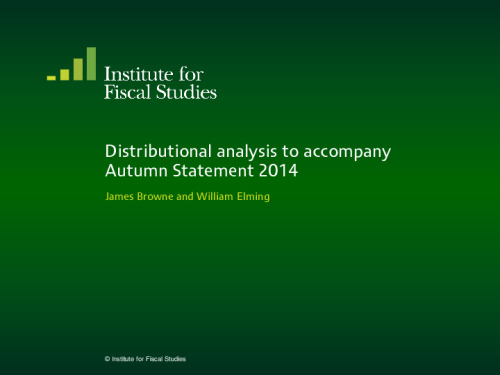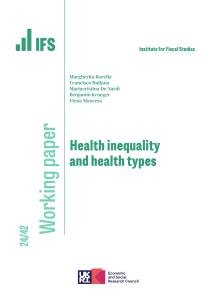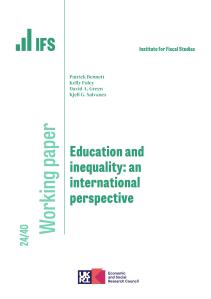Downloads

as2014_browne.pdf
PDF | 110.27 KB
Presentation given at the Autumn Statement 2014: IFS analysis event on 4 December 2014.
Authors

James Browne

William Elming
Presentation details
- DOI
- 10.1920/ps.ifs.2024.0692
- Publisher
- IFS
Suggested citation
Browne, J and Elming, W. (2014). 'Distributional analysis to accompany Autumn Statement 2014' [Presentation]. London: IFS. Available at: https://ifs.org.uk/publications/distributional-analysis-accompany-autumn-statement-2014 (accessed: 29 October 2024).
More from IFS
Understand this issue

How to reduce child poverty: compare the policy options
Use these charts to compare policies for reducing child poverty and to examine how child poverty rates have changed over time across different groups.
3 October 2024

How can government reduce child poverty?
We're exploring why there's been an increase in child poverty since 2010 and options the government has to reduce this.
3 October 2024

Professor Sir Richard Blundell to give the Marshall Paley Lecture on inequalities
27 September 2024
Policy analysis

Living standards, poverty and inequality in the UK: 2024
25 July 2024

Green Budget 2024: Full report
The new Chancellor faces a difficult fiscal inheritance. Her choices on tax and spending at this first Budget could define the rest of the parliament.
10 October 2024

Pressures on public sector pay
Over a fifth of government spending goes on pay. We examine recruitment and retention challenges which mean that pressures could mount going forward.
27 September 2024
Academic research

Health inequality and health types
We use k-means clustering, a machine learning technique, and Health and Retirement Study data to identify health types during middle and old age.
3 October 2024

Education and inequality: an international perspective
20 September 2024

Hours of work and the long-run effects of in-work transfers
21 August 2024